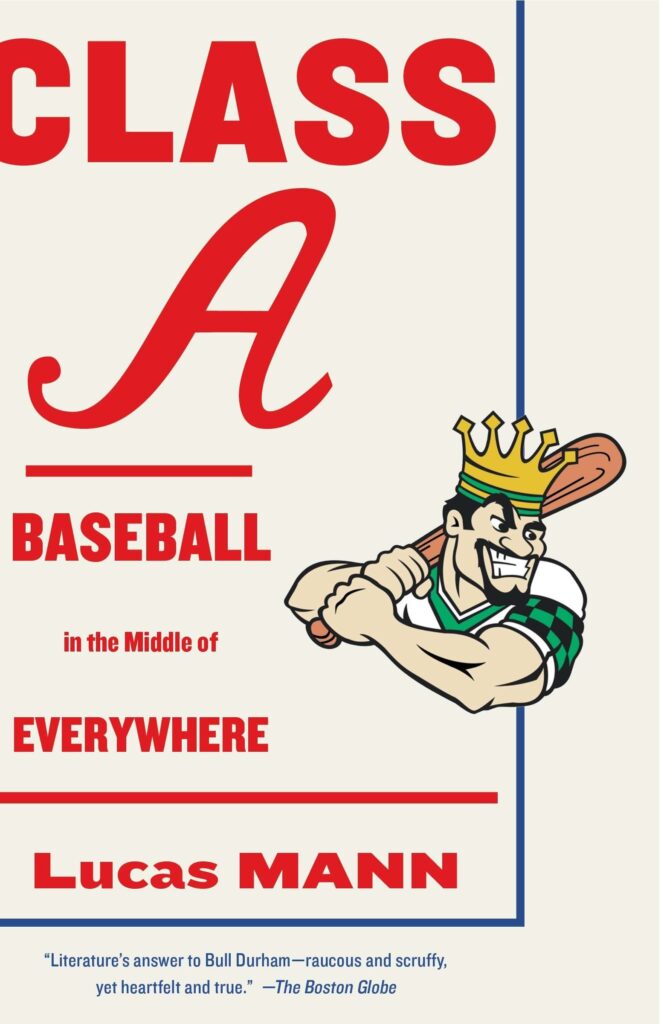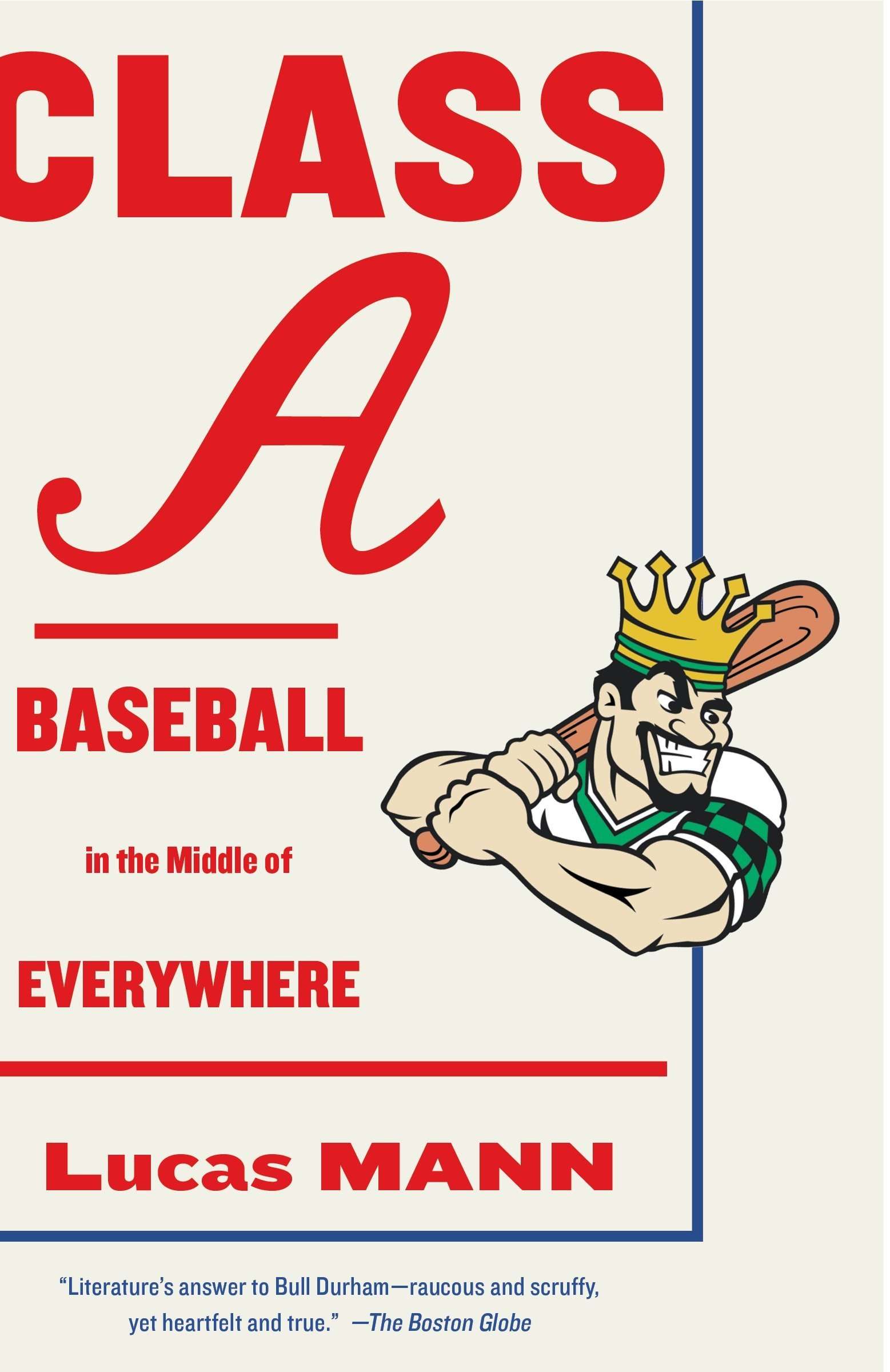Class A: Baseball in the Middle of Everywhere by
Lucas Mann
In Class A: Baseball in the Middle of Everywhere, author Lucas Mann chronicled his year following the Clinton, Iowa LumberKings. He hung out in the stands, and joined the players in the locker rooms, the restaurants and bars they frequented, and even their apartments. While there is plenty in this book for the baseball enthusiast and the sports aficionado, it is more than a conglomeration of extended interviews or a paean to the glory of statistics, nor is it merely a glimpse into the minutiae (both inspiring and tawdry) that marks the less glamorous introductory level of professional sports. Instead, it makes the ball club the core of the story, but then spirals out to portray not only the players, but also the “Baseball Family” (a hardcore group of local fans), the town of Clinton, with its history, landscape, industry and celebrations, and especially the author’s own memories, both cerebral and sensorial. In fact, the writing is so layered and entwined that it’s easy to forget this is a work of nonfiction, and that every name, every event, every score is real and unfabricated.

“Casey at the Bat” takes place in Mudville, which is entirely fictional but refers to a town in Massachusetts or California or Iowa, depending on which place you ask. Forget the character of Casey, forget the mounting rhythm of a ninth-inning strikeout, the poem’s power comes from its combination of intimacy and vagueness. It was set in a field whose crowd roar echoed up mountains, down valleys, in the dells, in the flats. An impossible field that was in the middle of everywhere.
Mann’s book is not tightly structured; instead, it meanders between people and places, the present and the past, of things that brought us to this point, and even what may well happen (or has happened) after the here-and-now of the narrative is complete. This would be frustrating, were it not for the off-hand fluidity of Mann’s writing; while reading Class A, one gets the distinct impression of sitting in on a one-sided rambling conversation – perhaps over beers or a couple of orders of large fries at the local McDonalds.
Yet it should not be assumed that this book is one full of hope and honor, with an uplifting ending full of bright shining faces and unabashed optimism. It is not: remember, this is nonfiction. The town of Clinton is no longer in its heyday, its once vibrant history now clinging to the hem of the Archer Daniels Midland plant that keeps the town afloat. The people of the town, the LumberKings’ staunch fans, are not glamorous or even heroic; they are memorable in an ordinary sort of way. That Mann understands and respects them despite, or perhaps because of their limitations is a perspective that is invaluable and almost embarrassingly genuine. The players that we kinda sorta get to know – no one really wants to open up, because Clinton is just one stop on the journey, hopefully a short one – are just as liable to be released as they are to be told they are “moving up”, and they react just as stoically to either reality. One day they are there, the next day they are missing from the roster and someone else will be there to take their place.
After reading this book, it may be that buried in the small print of the stats in some random newspaper or even on a fleeting highlight reel of some homogenous sports show you might be able to say, “hey, I read about that guy…”, and it all will again become just a little more real.
And this spring all across America, in the middle of everywhere, for a group of young hopefuls, the dream rises again.
—Sharon Browning

